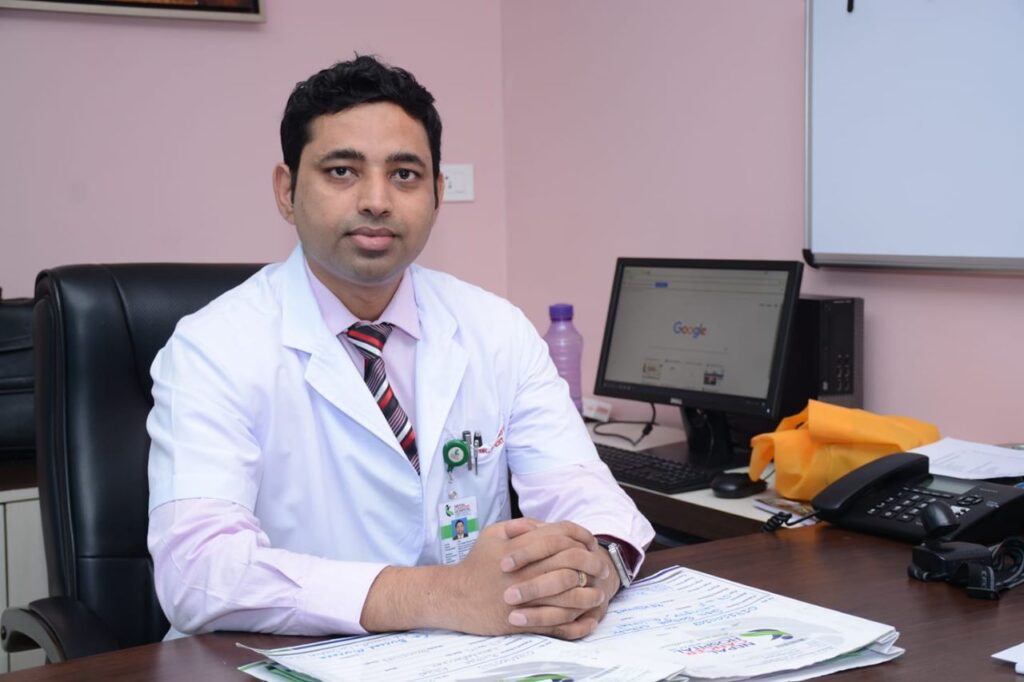Table of Contents
ToggleHead and neck cancer is a formidable health challenge worldwide, and effective management of this disease is critical for improving patient outcomes. One of the leaders in the field of head and neck cancer surgery is Dr. Prabhat Chandra Thakur, a renowned surgeon based in Nepal. In this blog post, we will explore the complexities of head and neck cancer surgery and discuss Dr. Thakur’s contributions to this challenging field.
Understanding Head and Neck Cancer Surgery

Head and neck cancer surgery involves complex procedures aimed at removing cancerous tumors while minimizing damage to the organs of speech, swallowing, and appearance. This type of surgery can often entail the removal of vital structures, which necessitates innovative reconstruction techniques to restore form and function.
The Role of Reconstruction in Cancer Surgery
Reconstruction in head and neck cancer surgery is a critical aspect that seeks to repair areas damaged by cancer and its treatment. Techniques may include the transfer of bone, muscle, skin, and associated blood vessels. These procedures help patients regain their ability to perform essential functions and improve their overall quality of life post-surgery.
Dr. Prabhat Chandra Thakur: A Leader in the Field
Dr. Prabhat Chandra Thakur is known as one of the best oral cancer, thyroid, head & neck cancer surgeons at the Nepal Cancer Hospital & Research Center in Harisiddhi, Lalitpur. His expertise extends to endoscopic skull base surgery and sophisticated reconstructive techniques in the head and neck regions.
Educational Background and Achievements
Dr. Thakur’s impressive educational journey began with his graduation (MBBS) from B.P.KIHS, Dharan, followed by a Post-Graduation (MS) in Otolaryngology-Head and Neck Cancer Surgery from the prestigious PGI Chandigarh, India. He is also a recipient of the Gold Medal Award for the best outgoing resident at PGI Chandigarh, a testament to his dedication and skill.
Specialized Fellowships and Training
Further enhancing his surgical repertoire, Dr. Thakur has completed a GOLF fellowship in Head & Neck Oncology from the International Federation of Head & Neck Oncologic Societies (IFHNOS) and Memorial Sloan Kettering, New York. He also pursued a Minimal Invasive Thyroid Surgery Fellowship at the General Hospital, Bangkok. These experiences have equipped him with the knowledge and skills to perform cutting-edge surgeries in his field.
The Impact of Advanced Surgical Techniques
Dr. Thakur’s approach to head and neck cancer surgery not only focuses on the removal of tumors but also emphasizes aesthetic and functional reconstruction. His work in minimal invasive techniques and endoscopic procedures represents the forefront of efforts to reduce patient recovery time and improve cosmetic outcomes.
A Comprehensive Care Philosophy
At Nepal Cancer Hospital & Research Center, Dr. Thakur and his team are committed to providing holistic care. This includes pre-surgical counseling, advanced surgical treatment, and post-operative care, ensuring that each patient receives comprehensive support throughout their treatment journey.
Conclusion: Leading the Way in Cancer Surgery
Dr. Prabhat Chandra Thakur’s contributions to head and neck cancer surgery have set new standards in the field, particularly in Nepal. His expertise in both oncologic and reconstructive surgery enables him to offer the best possible outcomes for his patients, making him a pivotal figure in the fight against head and neck cancer. Patients and their families looking for exceptional care in head and neck cancer surgery may find in Dr. Thakur not only a skilled surgeon but also a compassionate healthcare provider dedicated to their recovery and well-being.

Designation: Consultant & Unit Chief/Program Director Head & Neck Oncology
Qualification: MBBS, MS(ORL-HNS), Fellowship Head & Neck Oncology
Department: Head and Neck Oncology Unit
Special interest: Reconstructive surgery and Minimal Invasive surgery in Head & Neck
